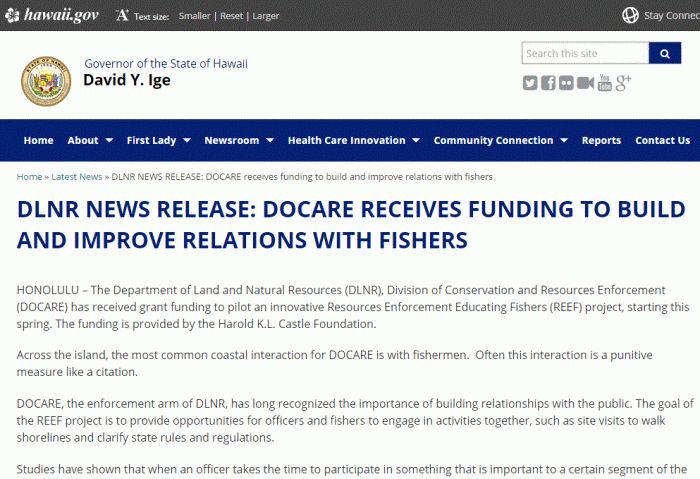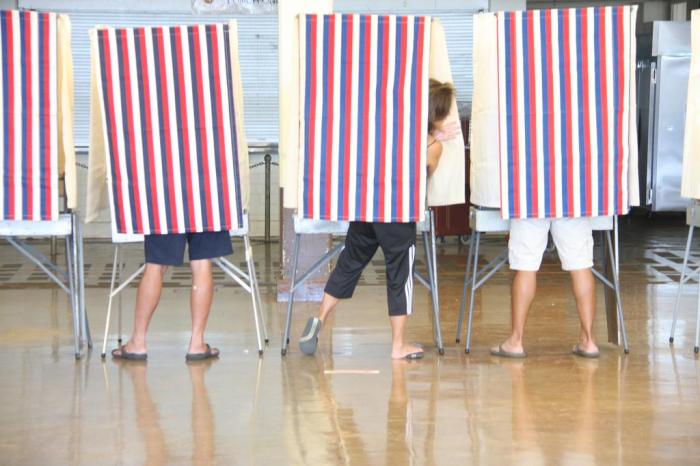 This week’s issue of Midweek waded into the political discussion by offering a flattering spread on the two money chairs (Sylvia Luke and Jill Tokuda) in the state legislature. In it, the author goes to great lengths to ignore the spotty legislative record of these two legislators to deliver a fairy tale fitting for bedtime stories told to the next generation of Young Democrats. While it takes very little scrutiny to shatter the façade painted by Midweek, it is disheartening that they are perpetuating the lies and deceit told by sitting legislators – especially in an election year.
This week’s issue of Midweek waded into the political discussion by offering a flattering spread on the two money chairs (Sylvia Luke and Jill Tokuda) in the state legislature. In it, the author goes to great lengths to ignore the spotty legislative record of these two legislators to deliver a fairy tale fitting for bedtime stories told to the next generation of Young Democrats. While it takes very little scrutiny to shatter the façade painted by Midweek, it is disheartening that they are perpetuating the lies and deceit told by sitting legislators – especially in an election year.
To be clear, much of the time in this blog is spent scrutinizing the chairs of both money committees in the Legislature – the House Finance Committee and the Senate Ways and Means Committee. Conventional wisdom would dictate that more space should be devoted to criticizing the Senate President and the Speaker of the House. The disproportionate scrutiny is justified because (a) the incredible amount of influence and power that these committees wield, relative to other committees, and (b) specifically how Luke and Tokuda use this power to leverage their own agendas. If there is one thing that the Midweek’s Dan Boylan got right:
Thus the power and the potential of Luke and Tokuda. House Finance and WAM (Ways and Means) decide the fate of every bill referred to them: those by the governor and those by the Legislature’s 31 subject committees. Legislation sans funding is meaningless.
I would have been content to give this article a pass. Midweek is known neither for its substance nor its depth in reporting. The cover, however, made an assertion that could never be delivered upon:
Da Sistahs: Looking Out For Your Money – Jill Tokuda (right) chairs the Senate Ways and Means Committee. Sylvia Luke chairs the House Finance Committee. In other words, they control the purse strings at the Legislature. And they’re very picky about what they’re willing to spend money on.
The truth is, they are not picky at all. They are not even judicious. Let’s look at the Dynamic Duo’s greatest hits:
Department of Hawaiian Homelands (DHHL) : The courts found that under the watch of Luke and Tokuda, DHHL was underfunded to the tune of $28 million. In her ruling, Circuit Court Judge Jeannette Castagnetti wrote about the net effects, “DHHL suffers from a lack of funding and staffing, which adversely affects beneficiaries of the Hawaiian Homelands Trust.
Turtle Bay: Under Luke’s watch, a check was written sight unseen to finance a conservation easement at Turtle Bay for $40 million – a proposal that never received a public hearing. In a gotcha moment (that later backfired), then Governor Neil Abercrombie admonished Luke’s (and then Senator Ige’s) “creative math”. In a rare admission of guilt, Luke confided to the Honolulu Star-Advertiser when Derrick DePledge wrote:
Luke said she was not surprised there was a mistake in the bond declaration bill because lawmakers scrambled at the end of the session to find $40 million in bond money to finance a $48.5 million conservation easement at Turtle Bay Resort.
If one cannot even add the numbers correctly, perhaps they would be better off chairing the House Judiciary Committee.
Kihei High School: In what is turning out to be a highly contentious issue, Luke has funded the construction of a high school in Kihei despite declining enrollment on the island. In an April 26, 2016 Op-Ed to the Honolulu Star-Advertiser:
To add insult to injury, the House just slashed it (money allocation for a new building at Campbell High School) by half to $15 million, while appropriating $37 million for a new high school in Kihei that is not needed; enrollment there (Maui/Baldwin) is projected to decline by 409 students while West Oahu (Campbell/Kapolei) is predicted to rise by 769 students. Even more remarkable is that the Senate allocated zero dollars for Campbell and upped the Maui appropriation to $38 million. What are we doing?
Funding only half a building at Campbell High School? Building a high school where there is no need based on student enrollment? Clearly, Luke and Tokuda are NOT picky about how they spend your money. If that was not the case, they would be guilty of playing politics.
With sympathy to the Kihei students who must commute to attend Maui High School, there is no need for a Kihei High School. With existing Kapolei and Campbell High Schools stuffed to the gills with students, a long-talked about high school in East Kapolei is the fiscally-responsible thing to do, not another band aid on a campus that cannot and should not be supporting an excess of 3,000 students. Alternatively, Tokuda could agree to reduce the number of under-enrolled high schools in her area from three to two so other areas of the state could be better served.
Luke and Tokuda have a long track record available for scrutiny despite the hopes of liberal-loving media that you look past the comedy of errors. Upon examination, the illusion of “picky spending” and “fiscal prudence” is seen for what it really is: petty politics and legislative factionalism.
When print is not even worth the paper that it is printed on, the only thing that this week’s issue of Midweek is good for is lining the bottom of the bird cage.

 Focused on passing term limits for legislators, conservatives are missing the boat as liberal Democrats pass laws to entrench themselves as lifetime lawmakers. Language inserted into HB2156 (Links:
Focused on passing term limits for legislators, conservatives are missing the boat as liberal Democrats pass laws to entrench themselves as lifetime lawmakers. Language inserted into HB2156 (Links: